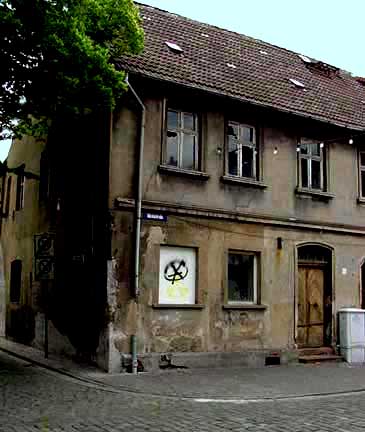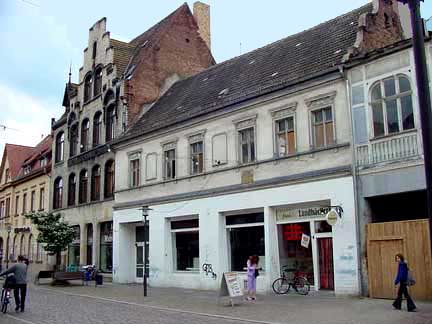An American tourist visits Gardelegen From the moment that I entered Gardelegen, on my visit in May 2002, I sensed that I was in the former Communist country of East Germany. Eleven years after the unification of East and West Germany, Gardelegen still had that unmistakable run-down, shabby look of a former Communist town. Gardelegen looked poor and neglected; it seemed to have been frozen in time, almost as though it were abandoned by its hard working and orderly German citizens in 1945. In 2002, the population of Gardelegen was 13,500, the same number of people as in 1945, but the town is not the same. There were boarded-up buildings with broken windows on the main streets of the town and everywhere I looked, there was blight and decay, with not a construction crane in sight. There were a few new apartments built in the Communist style: cheap looking and very plain utilitarian architecture, which looked totally out of place in a historical town that still has remnants of a town wall dating back to the 13th century. This is the same depressing sight that I've seen in other former Communist countries like Poland and the Czech Republic, and in some other former East German cities like Weimar. Gardelegen was, to me, a silent testimony to the failure of Communism.  My first sight of the town reminded me of Theresienstadt, the former garrison town in the Czech Republic which was turned into a ghetto for the Jews during World War II. The town of Gardelegen became a Prussian garrison town in 1715, much like Theresienstadt which was built in the 18th century as a garrison town for the Austrian Empire. And just like Theresienstadt when I visited it several years ago, Gardelegen had still not recovered from the Communist days. Before arriving in Gardelegen, I had just come from a visit to the beautifully preserved town of Celle, which is a happening place. I had to reserve my hotel room six months in advance to get the hotel that I wanted to stay at in Celle. I already knew how popular Celle was because it was highly recommended in all the tourist guidebooks. Celle is located in the former British zone of occupation, so it was in West Germany before the unification. Gardelegen was formerly a trade center in medieval Germany, and although, at one time it was prosperous, its economic importance has long since faded. In sharp contrast to Celle, the streets of Gardelegen were almost deserted with virtually no visitors when I visited the town in May 2002, fifty-seven years after the event which put the town on the list of places where Jews died in the Holocaust. ContinuePreviousHomeThis page was last updated on March 29, 2007
|